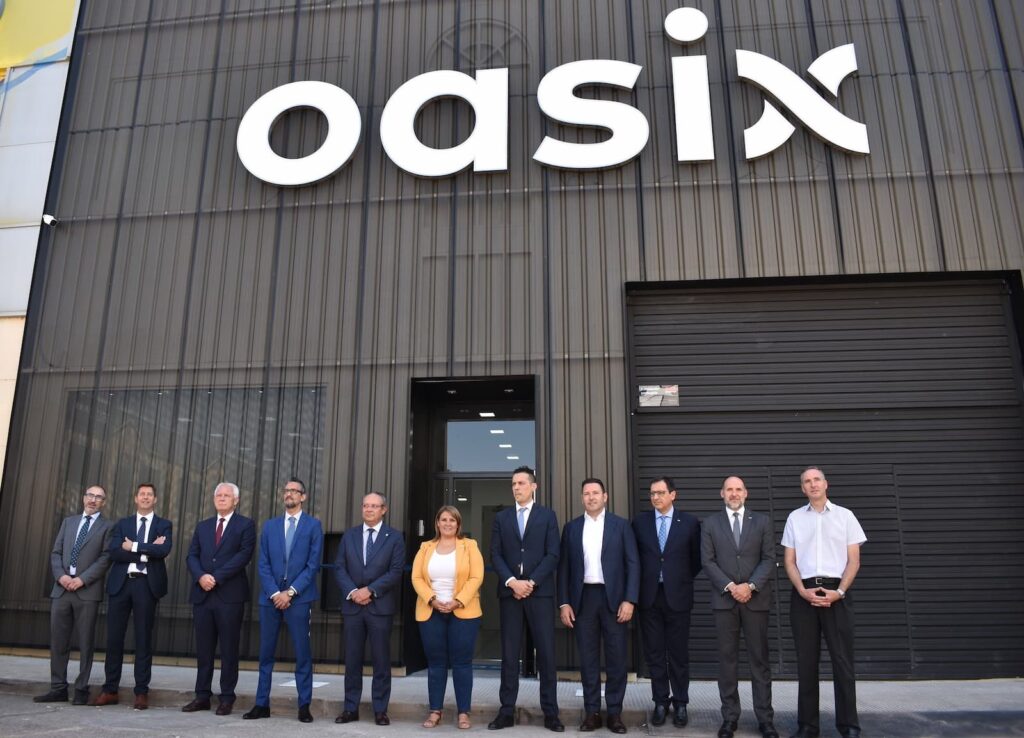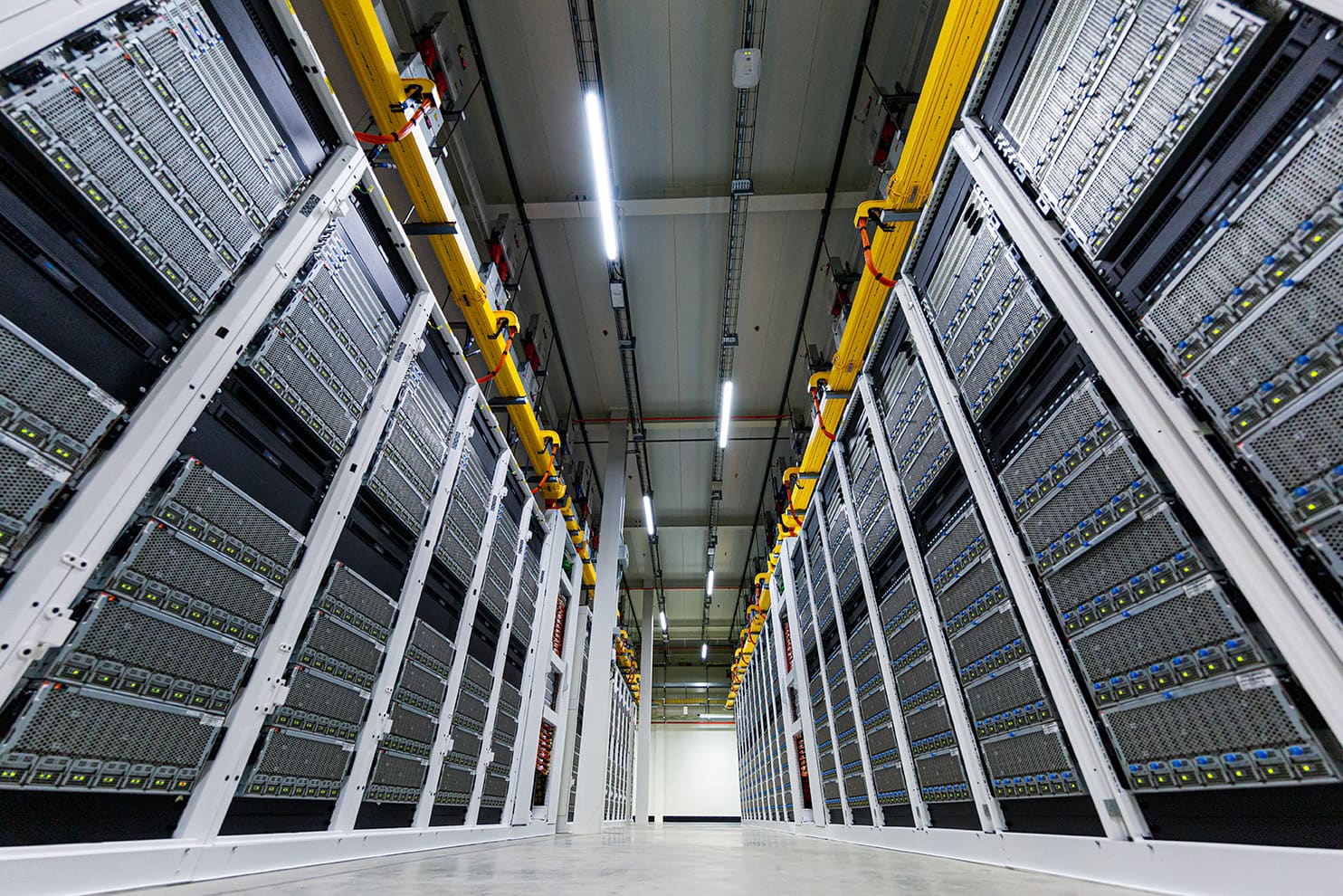Spain Rises as the New European Tech Hub Where All Major Industry Players Converge
For the first time in tech history, something extraordinary is happening on the Iberian Peninsula. Amazon, Microsoft, Meta, Google, Oracle, and IBM have all set their sights on the same place: Spain. This isn’t coincidence. It’s pure strategy.
The phenomenon is unprecedented. Never before have all the so-called “hyperscale” tech giants simultaneously committed to a single territory for deploying their cloud infrastructure. And that place is Spain.
The Playing Field Is Changing
Elliot Zounon, the French expert leading the data center team at CBRE, is clear: “There’s not a single investor, operator, or large tech company that doesn’t have strategic plans to establish a data center project in the Iberian market.” His words are not exaggerated. The facts back them up.
The emerging map shows a Spain transformed into the new digital heart of Southern Europe. Amazon Web Services has established itself in Aragon since 2019. Microsoft, Google, Oracle, IBM, Kyndryl, and OVHcloud have chosen Madrid as their hub. Meta, the parent company of Facebook, WhatsApp, and Instagram, invested in Talavera de la Reina in Toledo. Even Portugal joins this revolution, with De-Cix setting up in Sines.
The Invisible Threads of Digital Power
What makes Spain so irresistible to these tech giants? The answer is literally beneath the water. Submarine fiber optic cables connecting the peninsula to the rest of the world are the key.
Names like Google’s Equiano, Meta’s Marea, Microsoft’s EllaLink, and Google’s Grace Hopper weave a submarine web that makes Spain a strategic node of global connectivity. These cables aren’t just infrastructure; they are the arteries along which the planet’s information flows.
The Reign of Merlin Properties
In this new digital order, a Spanish player is writing its own success story: Merlin Properties. Led by Ismael Clemente, this real estate company has become the largest owner of data center infrastructure in the Iberian Peninsula.
Impressive numbers: by 2029, it aims to reach 600 megawatts of capacity across its centers in Getafe, Álava, and Barcelona, already operational in an initial phase. Additionally, it plans to build in Lisbon this year and has two mega-centers in Extremadura on the horizon.
What makes Merlin special is not only its size but its innovation. Its centers operate without water for cooling—a crucial competitive advantage during times of water scarcity. Meta and the AI giant CoreWeave are already among its clients.
Spanish Players Making a Difference
But Spain isn’t just a battleground for multinationals. There are national actors strategically positioned in this digital landscape, building a solid and competitive alternative from Spanish soil.
Grupo Aire: The National Neural Network
One standout case is Grupo Aire Networks, which operates over 20 neutral, proximity data centers across the Iberian Peninsula, including 8 owned centers, connected through their network spanning more than 33,000 kilometers across Spain and Portugal.

A key part of Grupo Aire’s proximity strategy is its strategic locations in Madrid, Málaga, Las Palmas de Gran Canaria, Valencia, Barcelona, and other key cities, providing ultra-low latency connections to major international exchange points like AMS-IX, LINX, DECIX, EQUINIX, and ESPANIX.
Expansion to the Canary Islands: A Strategic Move
In January 2024, Grupo Aire strengthened its position with the acquisition of Idecnet, a Canary Islands operator founded in 1995, with its own network and data center in Las Palmas de Gran Canaria. This deal, which generated over 4 million euros in revenue for Idecnet in 2023, allows Grupo Aire to extend its infrastructure into the Canary Islands— a key geostrategic position for connections to Africa and a gateway to Atlantic submarine cables.
Idecnet stands out as the first operator offering dedicated 10G circuits in the Canary Islands and holds ISO/IEC 27001 and ENS Media certifications, reinforcing Grupo Aire’s safety and quality portfolio.
The Portuguese Connection: AR Telecom
Grupo Aire’s presence also extends into Portugal through AR Telecom, which has been offering integrated communication and ICT services, including data center infrastructure in Lisbon, for over two decades. This positions the Spanish group at the three main European submarine cable landing points: Marseille, Barcelona, and Lisbon.
Stackscale: Betting on European Cloud
Within Grupo Aire’s ecosystem, Stackscale stands out—co-founded by David Carrero, David Sánchez, and Javier Primo. The company specializes in private cloud infrastructure and bare-metal servers. The founders have extensive experience, including the creation of Ferca Network and Veloxia Network between 1998 and 2000, which later merged in 2004 to form one of Spain’s leading groups, serving over 15,000 clients with 1,200 servers by 2008.
David Carrero, co-founder and VP of Sales & Marketing at Stackscale, shares a unique perspective: “For years, we’ve demonstrated that building a European cloud is possible. Many companies offer cloud services based on European infrastructure, managed from Europe, under European legislation.”
His vision for European digital sovereignty is particularly relevant today: “It’s time to look inward, discover, and appreciate the European tech ecosystem. We have the talent, experience, innovation, and most importantly, the will to create a solid, lasting alternative.”
The Liquid Cooling Revolution
Stackscale is also at the forefront of technological innovation in data centers. As David Carrero explains, “We’ve reached a point where simply inflating air conditioning systems no longer makes sense. It’s like trying to cool an open oven with a household fan.”
While traditional air systems manage heat densities of up to 10 kilowatts per rack, liquid cooling comfortably handles between 50 and 100 kilowatts—an essential capacity for AI processors that generate enormous amounts of heat.
The Challenges Facing the Spanish Sector
According to Carrero, Spanish SMEs face significant barriers to adopting cloud solutions: “Many lack trained personnel in cloud technologies, making management and utilization difficult. About 53.7% of companies see cost as an obstacle.”
However, statistics show a positive trend: “In 2022, 34% of business processes in Spain were carried out in the cloud, up from 28% at the pandemic’s start.”
The Battle for Digital Territory
The Spanish market isn’t alone in this race. Alongside Merlin, players like Nabiax, Data4, Iron Mountain, Equinix, Digital Realty, and Panattoni compete. International giants like Azora and Blackstone have also entered, with Blackstone announcing a €7.5 billion investment in Aragón.
The diversity of actors—from real estate giants to specialized operators like Grupo Aire—creates a competitive ecosystem that benefits the entire industry and cements Spain’s position as a digital hub.
Madrid Challenges the Traditional Capitals
Historically, the power centers of European data centers were four cities that made up the FLAP: Frankfurt, London, Amsterdam, and Paris, later joined by Dublin. But Madrid has emerged strongly, establishing itself as the runner-up with 203 MW installed—surpassing cities like Milan, Zurich, and Berlin.
Meanwhile, Barcelona ranks tenth in Europe with 42 MW, confirming Spain as an emerging power in this sector.
The Fuel of the Revolution
The surge in data centers isn’t coincidental. It’s driven by exponential demand fueled by AI, cloud computing, and our growing reliance on digital services. From TikTok to Netflix, Tesla to ChatGPT, everything needs computing power.
CBRE data confirms: data storage capacity will multiply 90 times between 2010 and 2025. In just three years, from 2022 onward, it will nearly double. Economically, cloud services and AI will grow at an annual rate of 13%, reaching over two trillion dollars globally by 2030.
The Keys to Spanish Success
Spain combines unique factors explaining its appeal: political and economic stability, a strong push for renewable energy supporting sustainability goals, available land, and highly skilled talent. All within a country that has become the natural gateway to Africa and Latin America.
The presence of companies like Grupo Aire, with its proximity network, and Stackscale, with expertise in European cloud, proves that Spain not only attracts foreign investment but also fosters its own innovation ecosystem.
With 143 data centers, Spain is already the eighth-largest country in Europe for this sector, behind Germany, the UK, France, the Netherlands, Russia, Italy, and Poland. But trends suggest this position will continue to improve.
The Future Is Already Here
As David Carrero reflects, “It’s time to look inward, discover, and value the European technological ecosystem.” The combination of international investment, local innovation, and geostrategic positioning puts Spain in a unique position.
The global digital power map is being reshaped, and Spain has secured a seat at the table of the giants. The question is no longer if it will be relevant in the future digital economy but how much power it will gain in this new era where data is the new oil, and data centers are the refineries of the 21st century.
The success stories of companies like Grupo Aire and Stackscale demonstrate that behind this digital revolution, there’s not just foreign capital but talent, innovation, and strategic vision that are genuinely Spanish. The digital future is being built from Spain, for Spain, and for Europe.

